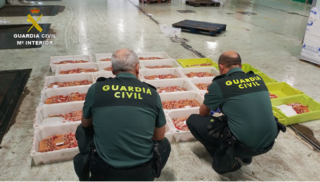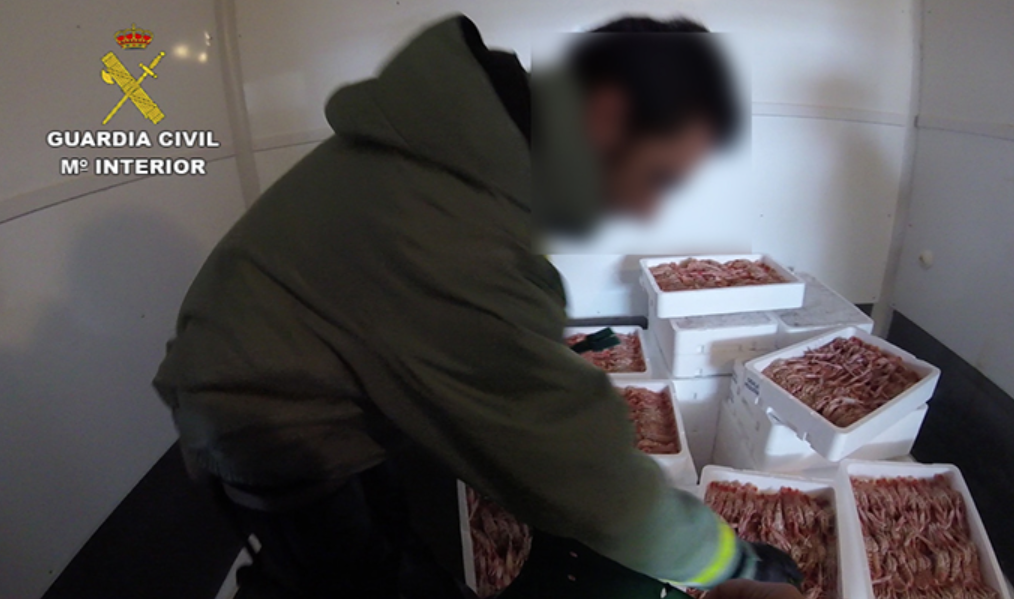Spanish authorities have halted the sale of certain seafood products in Galicia that may pose a risk to human health.
The Guardia Civil seized more than 150 tons of Norway lobster in the second phase of an operation called Pinza Roja. Norway lobster is also known as scampi, Dublin Bay prawn, or langoustine.
Seized product did not have correct traceability documentation so a health risk could not be ruled out.
The agency’s maritime section and the Coast Guard’s Veterinary Inspection Service of the Xunta de Galicia took the action. Value of the immobilized merchandise in the market was estimated to be €4.5 million ($5.1 million).

An inspection at an unnamed business that distributes food products, based at A Coruña port, found 863 boxes of frozen Norway lobster that lacked documents to guarantee origin and traceability. The facilities of another freezer company were inspected simultaneously and another 746 lots of the product were found.
Authorities also discovered 165 bags of antioxidant for the conservation of crustaceans, which they believe is a high amount based on the usual activity of the company.
Samples of frozen foods have been sent to a laboratory in Galicia to verify if the levels of sulfites or preservatives are in an amount greater than what is authorized. Results will determine the next steps in the investigation.
Officials said the operation is still ongoing due to the huge volume of shellfish to be inspected and difficult working conditions inside the cold rooms with temperatures of minus 22 degrees Celsius.
The first part of the investigation involved another 45 tons of Norway lobster being seized in July. Product without traceability information was being sold illegally in the building of a fish market to closed groups of buyers.
Investigations began when, during a documentation control, a consignment of fresh Norway lobster, without any traceability documentation, was found in one of the vehicles belonging to retailers leaving the port of A Coruña.
(To sign up for a free subscription to Food Safety News, click here.)

